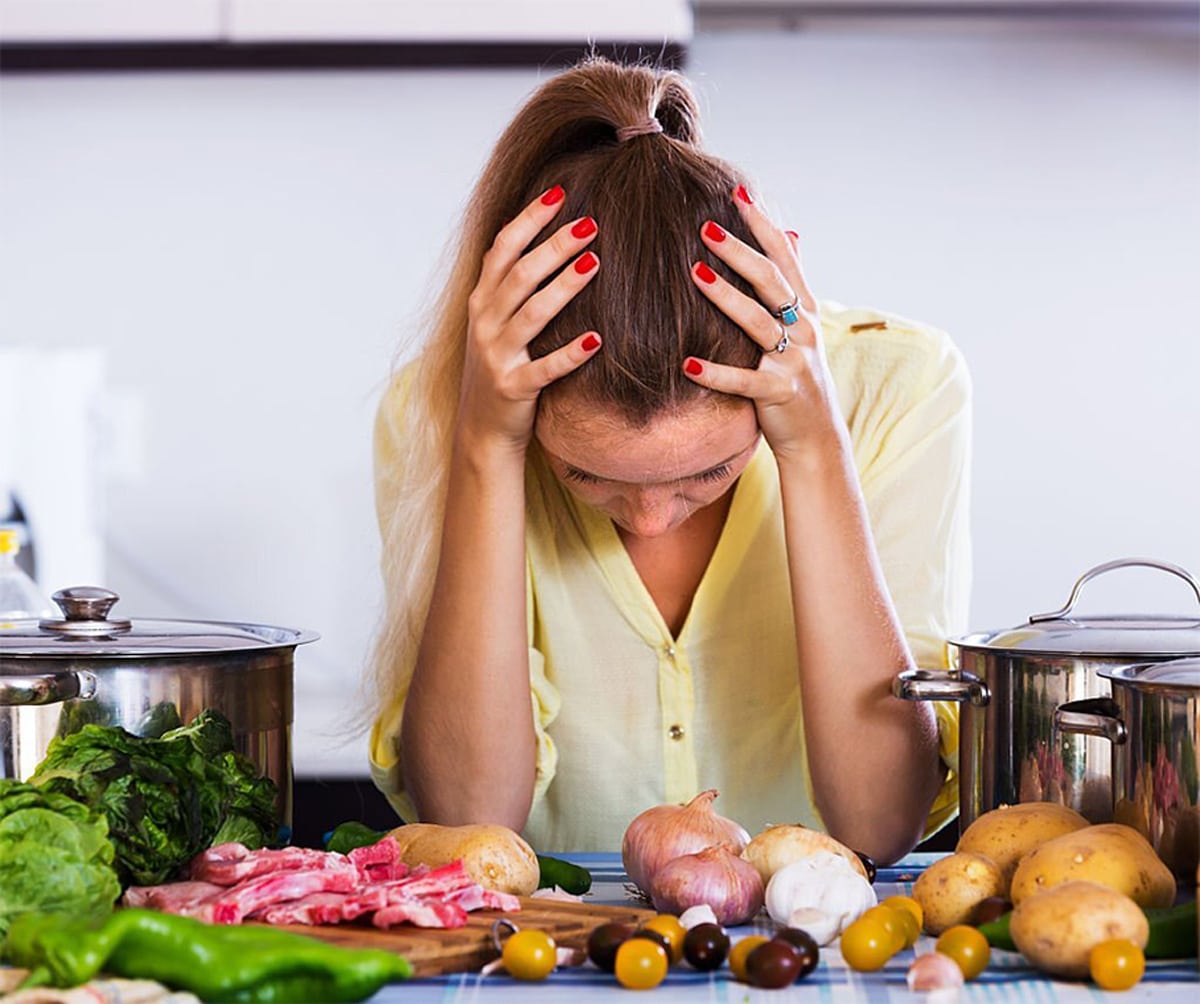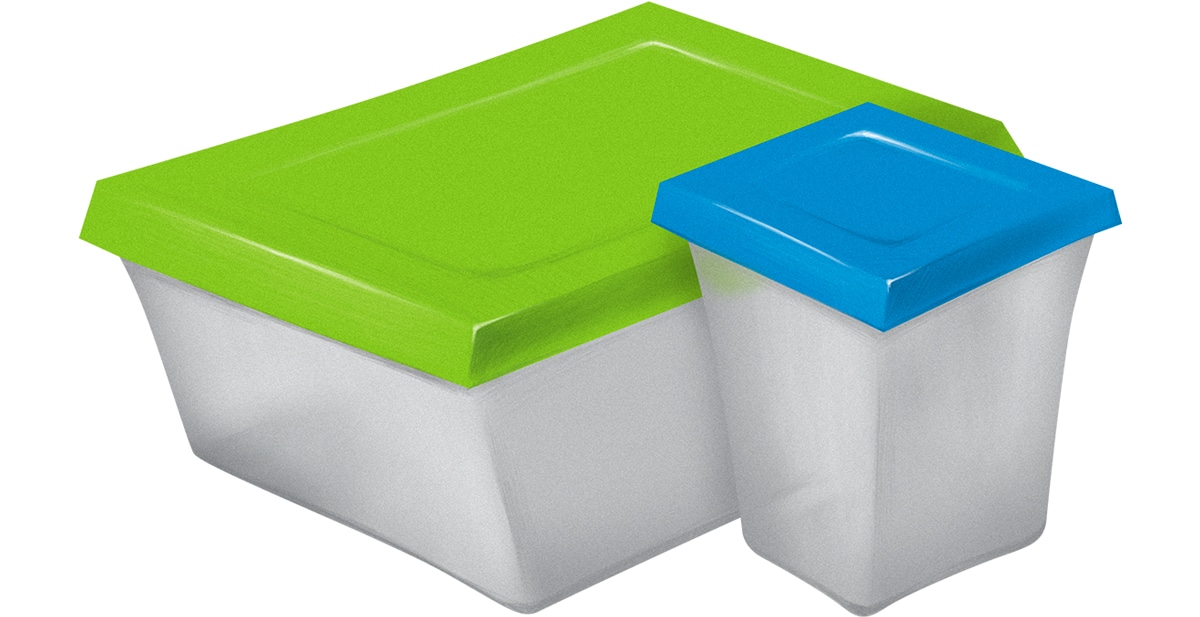
Paleo cooking does take time and effort - cooking every meal from scratch is a big deal, and if you're anywhere close to that, you owe yourself a huge pat on the back for making it work. But even if it's not effortless, it shouldn't be overwhelmingly stressful. Here are 6 ways to cut down on stress in the kitchen, whether the problem is a time crunch, disorganization, or just trying to do too much.
1. Prep Ahead Even if you Don’t Need it Immediately.
Sometimes, food stress comes from trying to cook when you really, seriously do not have time to cook right now. Then the whole process of cooking is rushed and unpleasant, and it’s one more thing on an impossibly long to-do list. Even if you enjoy cooking normally, it’s hard to enjoy it like that.
If you know in advance when you won’t have time to cook, you can use bulk prepping to avoid the problem before it starts. But life is unpredictable. You don’t always know when you’re going to need a grab-and-go meal…or three in a row.
Deal with that by prepping a few extra meals and sticking them in the freezer just in case. Then they can do you a favor as…
- Breakfasts when the morning turns hectic.
- Dinner when you get home late and you’re too exhausted to cook.
- Any meal when you’re just too darn busy.
And if you don't end up needing them, take a night off cooking just because.
2. Learn to Modify Recipes (Or Cook Without Them).
Cooking can also be stressful if you’re scared to deviate from a recipe even the slightest bit. Cooking like that makes it hard to find a recipe on short notice (by the universal laws of Things Going Wrong, you'll always be missing at least one ingredient), and it requires extremely rigid meal planning if you don’t want to be running off to the store every other day.
If you’re comfortable modifying recipes on the fly, cooking is much more relaxed. No garlic powder? OK, just throw in a couple cloves of actual garlic. No olive oil? Fine; use coconut and don’t sweat it. Accidentally missed a step? There’s almost always something you can do to make it work.
Better yet, learn the basic process of making some common meals and skip the recipe completely. Onions, green peppers, and chicken breast? Stir-fry. Eggs, leftover roasted broccoli, half a can of olives, and elephant garlic? Frittata. Here are 10 super-simple recipes for beginners that you could learn the concepts for so you don’t need a recipe to make them.
3. Relax About Paleo Imitations.
There’s also the unnecessary stress of trying to re-create grain-based foods at every meal. Paleo is not about imitating the typical American diet with almond flour and honey in place of wheat flour and sugar. If you’re not sure how to make a meal without bread, here’s a basic Paleo template for complete meals with no grains and no imitation grains.
If you’re trying to please a Paleo skeptic by making Paleo look like basically the same thing they’re used to – stop. Paleo imitation foods very rarely taste exactly like what you’re imitating. It’s not the same, and it’s not going to be, and pretending that it is the same just makes a lot more work for you.
Instead stressing out about trying to re-create pizza or bread or muffins every night for dinner, try just cooking Paleo foods and enjoying the flavors of things that aren’t pizza and bread but are still delicious. (And when you have time and energy, you can still make Paleo treats for special occasions)
If you have a spouse or kids who object to that – they should be so lucky to have someone who loves them and cooks them nutritious meals from scratch. If they want a say in the final product, then they can help with the cooking.
4. Use Variations on a Simple Theme for Variety Without the Stress.

One of the most obvious solutions to cooking stress is to just make simpler meals. But how do you simplify without getting bored?
The key is to do variations on a simple theme, not totally new recipes every time. For example, you can get a lot of flavor variety out of [roasted vegetable] + [spice] but you’re basically making the same easy recipe every time, just with slightly different ingredients.
Also, “leftovers” is not a dirty word, and the same batch of chili or stew can easily be the theme that you do variations on. Here are some tips.
5. Scope Out Local Restaurants in Advance.
A lot of Paleo food stress comes from restaurants – what to order, where to go, what to ask the server, and is it even possible to eat out if you’re on a very restrictive diet?
To minimize that stress, sit down ahead of time and look up at least 2 or 3 local restaurants where can you go for a reasonably Paleo-ish meal if you’re caught working late without dinner, or if you have company and want to take them out to eat. In the process, you’ll learn what to look for on the menu, so you can make fast choices if you’re heading for a meal at a strange place.
By the same token, it’s helpful to look up any Paleo meal delivery services in your area just to see what’s there. Even if you never use them, having the option can be reassuring.
6. Plan More…Or Less.
Some people are planners. They feel happiest when everything is on schedule and they know exactly what’s coming up and when. Those people are the planners, and if you’re one of them, planning out your meals can be shockingly helpful. Here’s how to get started meal planning. It can also be helpful to pencil your cooking time into your schedule, so you can stop worrying about when you're going to find time to do it, and feel relaxed and confident that you've planned enough time to get everything else done even with half an hour of cooking time in the evening.
On the other hand, some people find that level of planning to be stressful and unnecessary. If you’re in that tribe, this might not be such a great solution for you. Maybe an overly rigid meal plan is actually causing your stress, and you’d feel a lot better without it.
How do you avoid getting stressed out in the kitchen? Let us know on Facebook or Twitter!





Leave a Reply